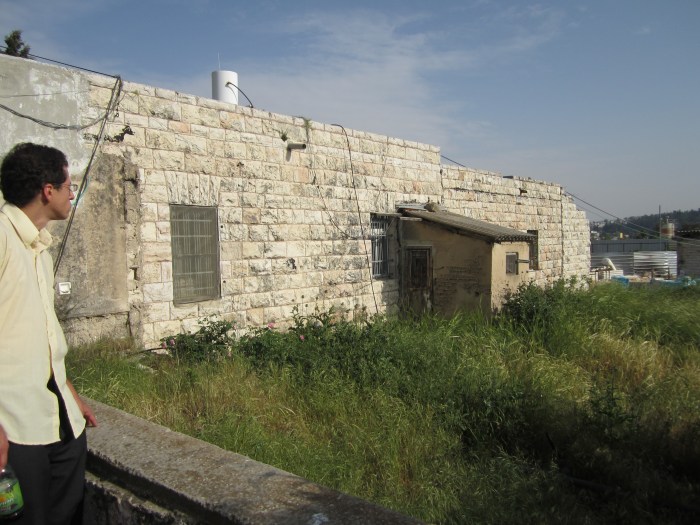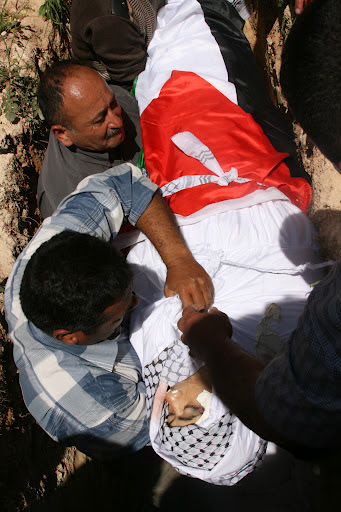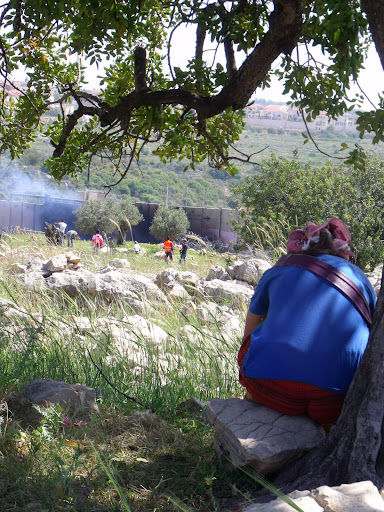Year: 2012
-
Deir Yassin: The peace that never was
10 April 2012 | The Habal Factor Two days ago, we visited Deir Yassin, or to be more specific, what remains of Deir Yassin, with Zochrot, an Israeli organization dedicated to educating the Israeli public about the nakba. The tour was organized in commemoration of the Deir Yassin massacre. We walked along the main street…
-
Fadi Abu Zeitoun, killed as settlers attacked farmers
by Rana H. 9 April 2012 | International Solidarity Movement, West Bank Israeli settlers attacked and chased a group of Palestinian farmers last Thursday, causing a tractor to flip over during the chase, causing the death of the Palestinian driver. On Thursday, April 5th, armed settlers from the illegal Israeli colony of Itamar attacked a…
-
Spring time in Ni’lin: Photos of the demonstration
by Maxine Kaufman-Lacusta 6 April 2012 | Refusing to be Enemies: The Book I’m a bit slow at writing things up, so in the meanwhile, here are some photos of this past Friday’s action in Ni’lin. To me the the most vivid pictures were the shebab, including boys who looked as young as 12 , symbolically…



